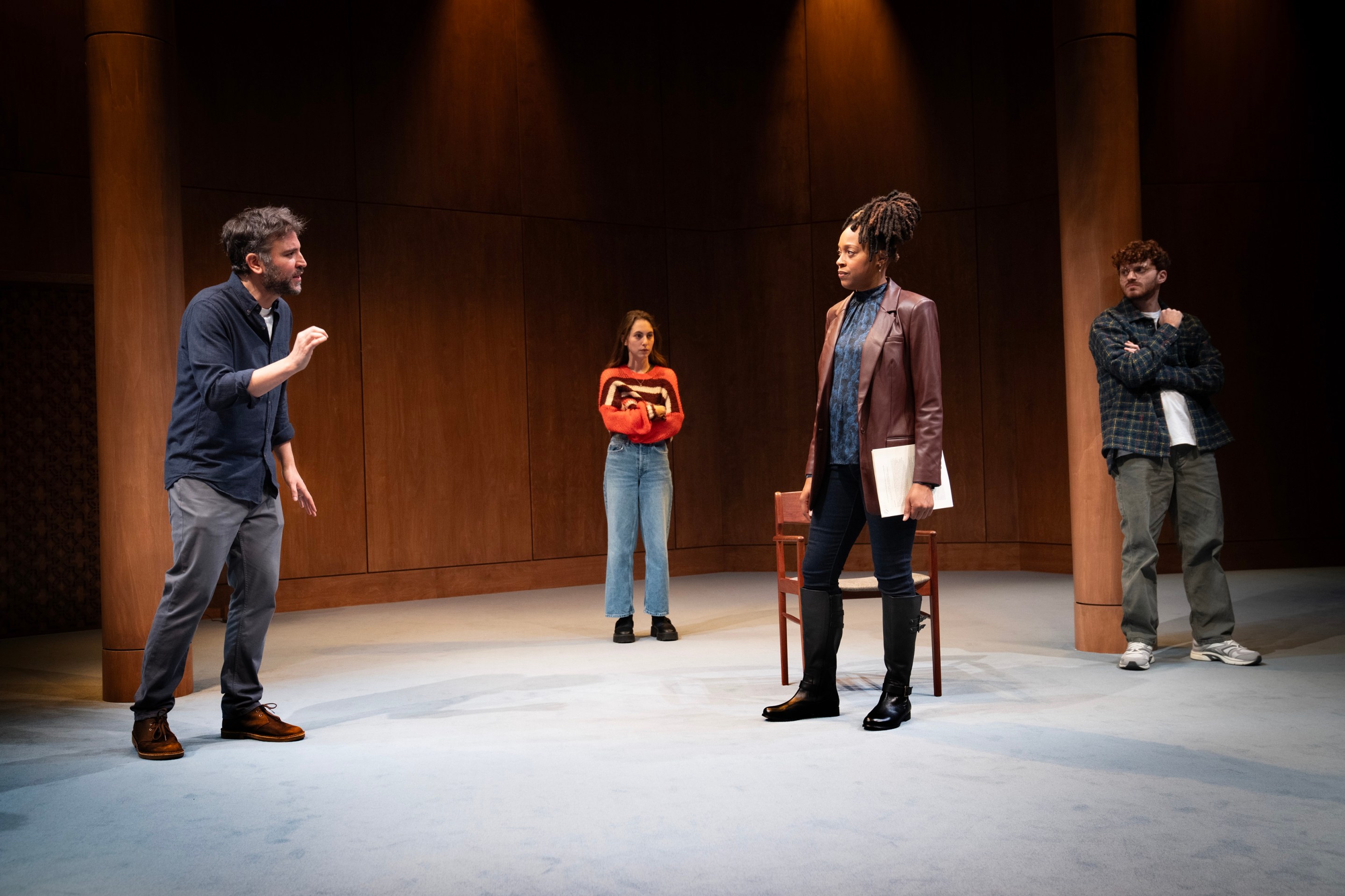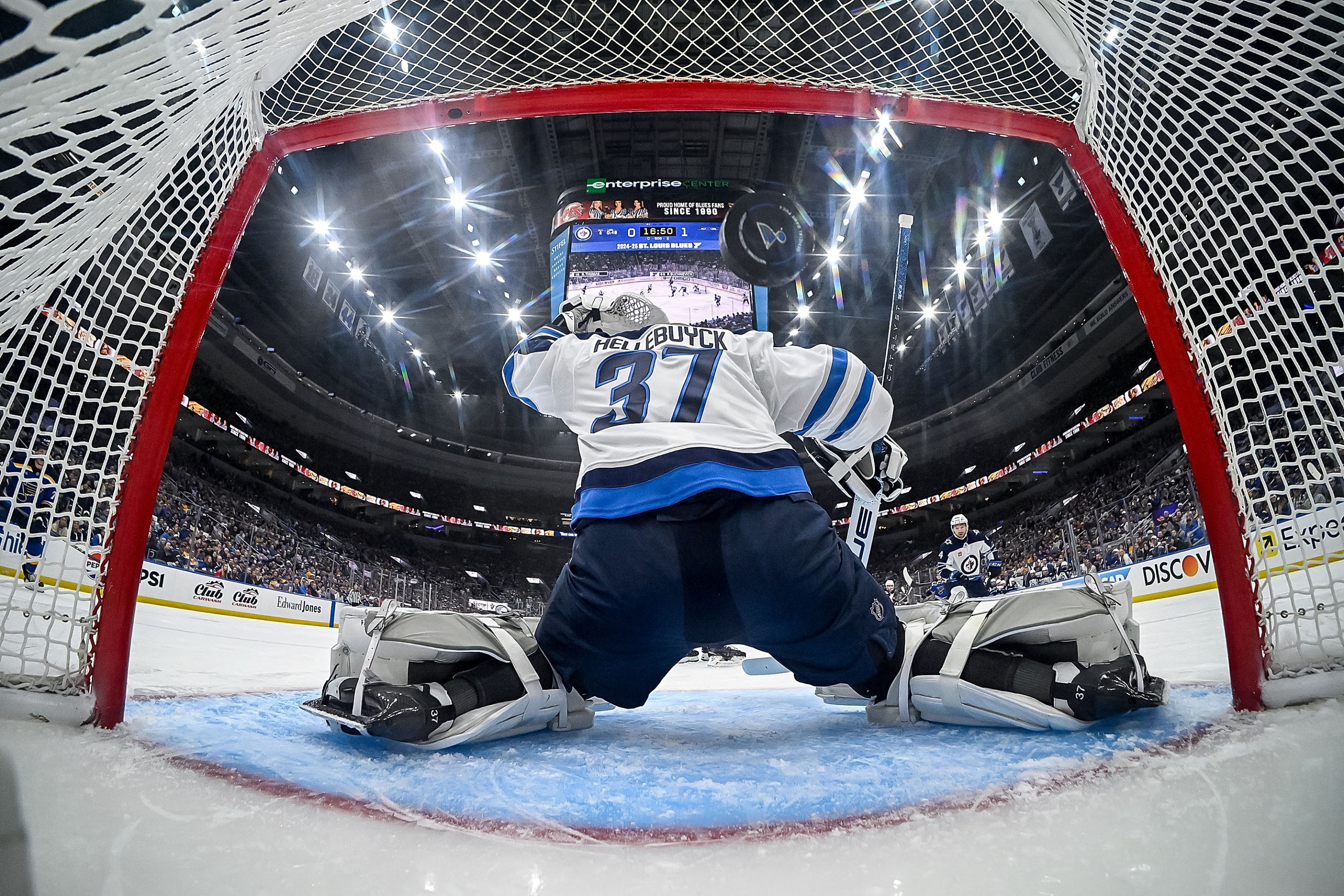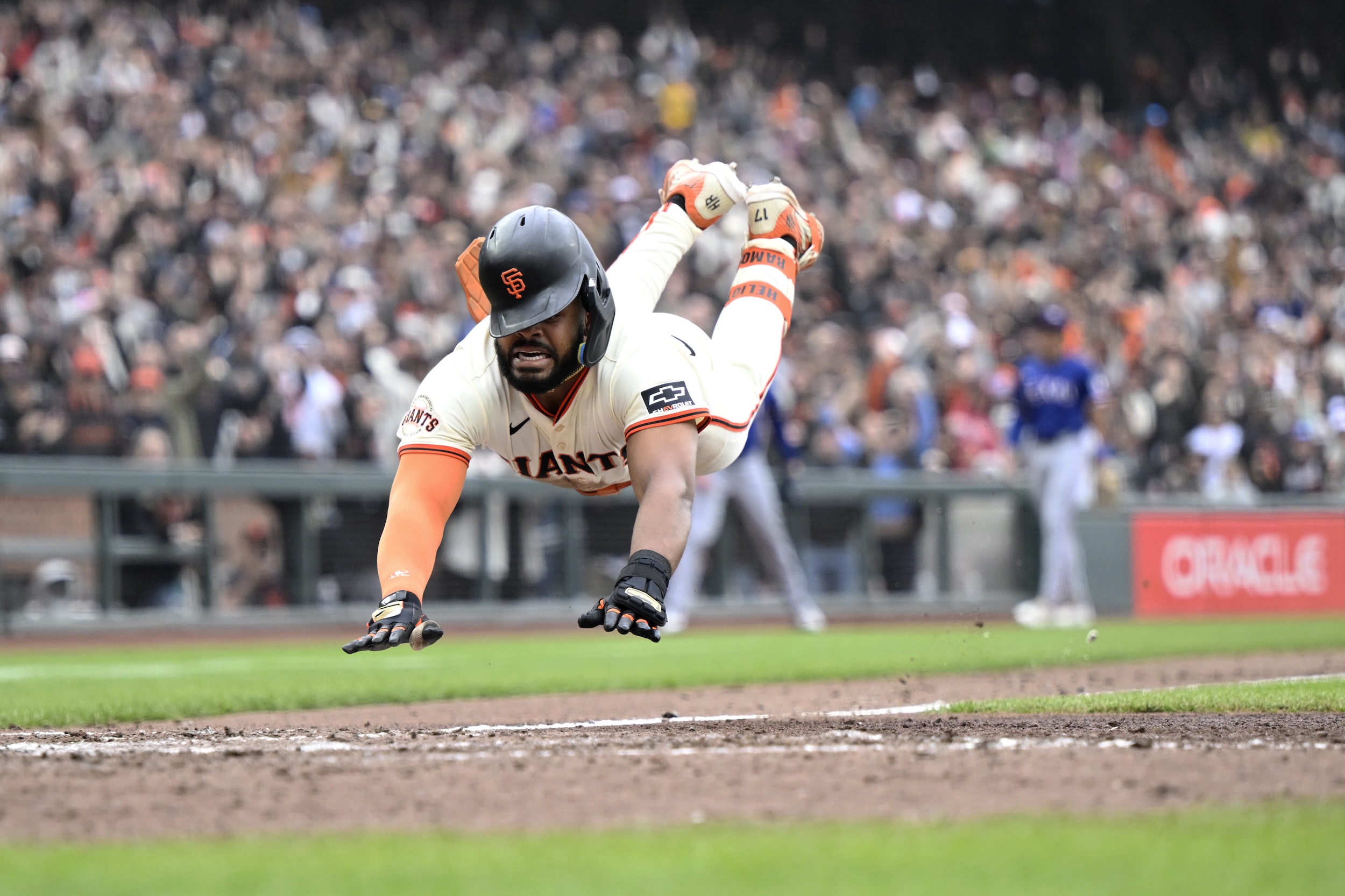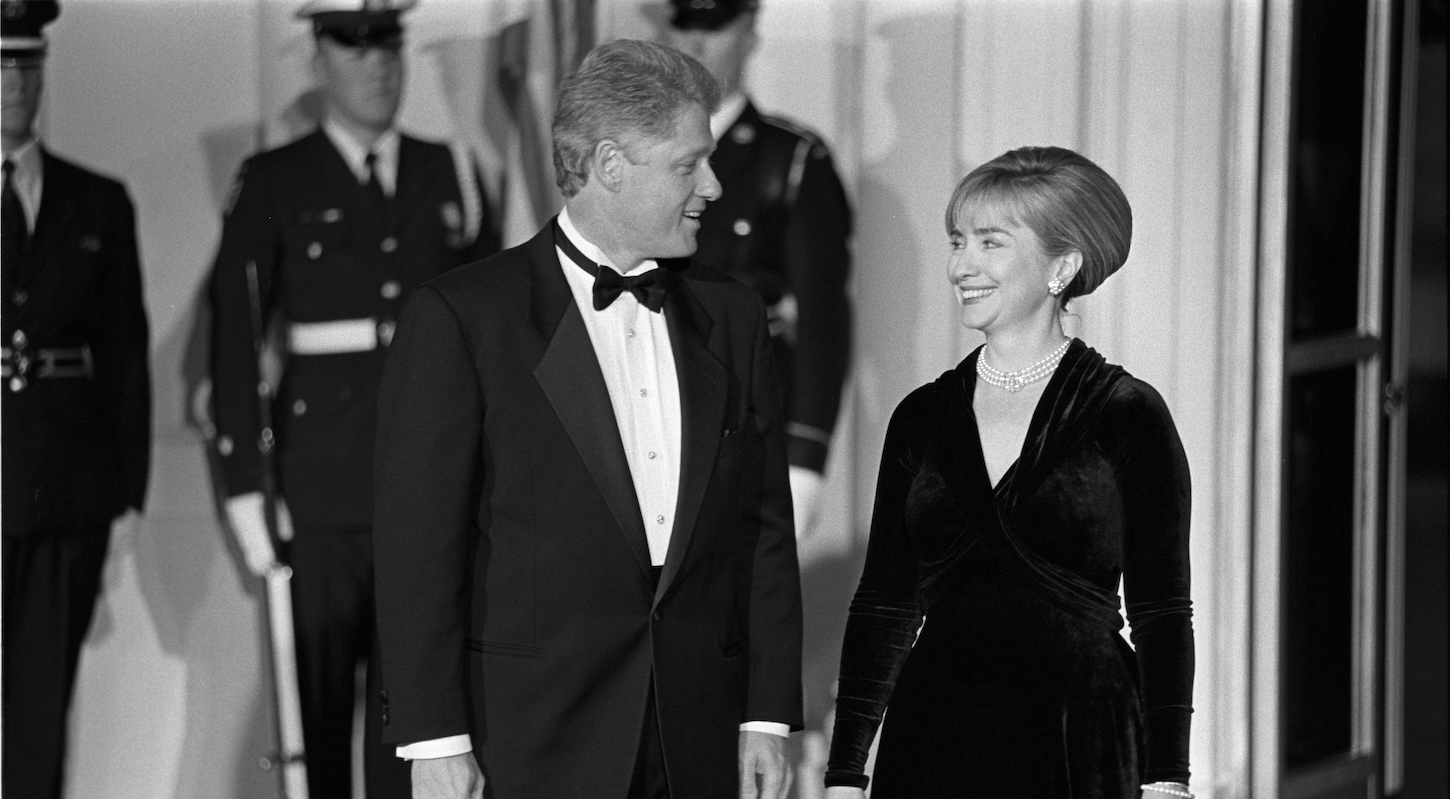What's hot in New York theater right now is curated arguments. In spaces all across the city, I'm seeing sellout crowds pay to attend shows where characters play tug-of-war over hot-button issues of the past, present, and future. At the vital incubation space The Tank, Andy Boyd's Three Scenes in the Life of a Trotskyist staged a trio of socialist-motivated arguments at major inflection points of the 20th century. One of the biggest off-Broadway hits of the past year, Max Wolf Friedlich's Job, layered a few thriller tropes on an engine that was simply a high-strung young tech worker going back and forth for 80 minutes with a (seemingly) chill veteran of the hippie era. On Broadway, while I'm still looking forward to seeing both of them, I understand Branden Jacobs-Jenkins's (big fan) Appropriate and a new version of Ibsen's An Enemy of the People push its characters to spar over the legacy of racism and the validity of science, respectively. Perhaps more immediate an example than any of these, Itamar Moses's The Ally has been multiply extended at the Public Theater largely because it's staked a claim as the place for people to consider Israel and Palestine through the lens of drama.
It'd be silly to claim that playwrights and producers have just now discovered that arguments can be dramatic. But I do believe audiences are processing these scenes differently. Once, pre-social media, it wasn't too hard for a person to go an entire day or more without encountering a legitimate argument between two people about a real-world issue. Now, however, significant chunks of many folks' lives are spent processing and making arguments by the hundreds. It's exhausting, and although you can appreciate social media as a means of delivering information, you'd be hard-pressed to find anyone who thinks it's healthy to absorb so many nasty opinions of strangers. A socially conscious argument in a play, then, can provide something else, something rarer. The success of these particular productions, I think, reveals a deeper desire for the idea of intelligent debate that doesn't solicit input from every member of its audience, all at once. To sit with two points of view in a dark room over the course of one night feels almost restorative in contrast with even just 10 minutes spent devouring an endless scroll.
In The Ally's first act, one of its characters argues forcefully that the free exchange of differing ideas is a core tenet of Judaism, referencing the overlapping commentaries that make up the Talmud. While the show's most right-leaning character scornfully dismisses the idea that an average person today could put themselves on a pedestal alongside legendary rabbis, Moses has constructed something in exactly that vein: overlapping voices of varied experiences all arguing their way toward what they believe is right. You can read Moses's note in the program in full here, but these are the three bolded phrases within that help explain why he wrote The Ally:
- I have a friend, a theater director, whose one of many mantras is that the best way to physically realize a challenging scene is to, as he puts it, “stage the problem.”
- It wasn’t any one particular event or incident, global or domestic, that got my wheels turning so much as any number of events, the arguments that followed, and my own reluctance to take part in them.
- It wasn’t that I had nothing to say. Rather, I didn’t know where to begin because what I had to say was too confused, too contradictory, too raw.
Moses, "as a left-wing, American Jew with Israeli-immigrant parents," found he couldn't articulate his feelings when the conversation touched on issues that hit his own identity directly. In The Ally, the obvious stand-in character is Asaf, played by Josh Radnor. Asaf is a writer who teaches one class at a college where his wife works full-time. When asked to lend support to a star student's fight to get justice in the aftermath of his cousin's murder by police, he ends up sponsoring an offshoot of a campus Jewish group that aims to show explicit support for Palestine. While he struggles to find a specific, tangible point on which he disagrees with these students, he recoils on a deep, instinctive level when it comes to broad-strokes condemnations of Israel that don't take into account the ever-present threat of antisemitism. For almost two-and-a-half hours, The Ally is nothing but arguments. Its staging feels cheap, and its characterizations are paper-thin, and that means it gets all its life from Moses's fictionalized brains going at it. But it has life.
I want to digress for a second and note that the audience, on Tuesday, seemed old and white and also Jewish enough that this joke I'll paraphrase here got maybe the biggest laugh of the night:
Asaf: I think your tone is too confrontational right now.
Student: I thought you were Israeli.
Asaf: Well, I have Israeli parents.
Student: So then you know I'm just talking!
I mention it because it'd be a mistake to characterize this play as especially provocative. It's unlike, say, Fairview, a past off-Broadway smash, which exposed its audience not just to offensive viewpoints but offensive viewpoints that sounded really annoying before commanding white people to consider their own power as viewers of the show. With Radnor in the center—pure unthreatening affability, the voice on your TV when you're eating pizza at 1 a.m.—there's a certain order that remains even when tempers run hot. Moses took great care to give every opinion in this play a legible underlying motivation that isn't racism or simple malice, and even the character with whom I disagreed most made reasonable points about the historic saturation of antisemitism to support his own zealous conviction that Israel is the thin blue line protecting Jews from another Holocaust. Everyone's argument is rooted in a relatable feeling, even if that feeling is an anxious defensiveness, to the point where it's almost comforting to hear these conversations as they take place in a relatively civilized manner.
That comfort is a luxury born of the fact that The Ally does not in any way cover Israel's genocidal campaign in Gaza over the last six months. It's set in an indeterminate time before Oct. 7. But it's impossible to consider the play without the facts of the real world bleeding in. The play's most sustained argument for the policy of Israel as it exists now, which is delivered right before the act break, evaporated just a few seconds after I took my phone off airplane mode. In a single intermission I saw a New Yorker article about a thousand child amputees in Gaza, the announcement that starving refugees will be receiving even less food after Israel's murderous airstrikes on aid workers, and apocalyptic images of what was once Al-Shifa Hospital. There is no voice worth listening to that says this is acceptable. There is nothing theoretical about human suffering. The play can't escape this weight. When a character in the second act mentioned his family in Gaza, it felt like an on-stage death.
The Ally does raise questions worth pondering—How do privileged liberals react when they no longer stand a safe distance from the left's key causes? Where does the fight against antisemitism fit, and how should it be prioritized, among other struggles for liberation?—but these are less immediately threatening than a question like "How much responsibility does each American carry for Gaza's 32,845 dead and 75,392 injured?" I suspect that a play dealing more directly with the ongoing atrocities wouldn't receive as much institutional support from the Public. I base that idea in part on another note in the Playbill, from the Public's artistic director Oskar Eustis. I admire the honesty and self-reflection that went into Moses's work, but Eustis's note is just congratulatory emptiness. His own bolded phrases:
- THE ALLY takes place on a college campus and engages on a deep level with issues that are facing universities and colleges across the country.
- Itamar has dived into some of the most difficult topics of our time and asks us to patiently listen to all sides.
- At its best, the theater allows us to get some distance from our own position, empathize with the feelings of others, and break the habits of thought and belief that keep us at each other’s throats in the world outside the theater.
Of the key venues downtown, New York Theatre Workshop is receiving the most public pressure to call for a ceasefire because of Victor I. Cazares's HIV medication strike, but it's been jarring to me how much of the ostensibly progressive off-Broadway establishment has failed to say anything of value about Palestine. Selling or paying to listen to an argument is not a courageous or even all that interesting an act, as much as the producers of this sold-out run might want you to believe it is. For as exciting as it can be to hear these arguments, fresh and free from internet poison, crackling with energy when its actors are scrutinizing each other's words in real time, Moses clearly believes that these debates are just the puzzle pieces that are supposed to eventually fit together into something bigger. The ending of the show, finally, moves beyond mere disagreement. Asaf, having witnessed a version of himself towards which he is simultaneously fearful and sympathetic, sits in a sanctified moment of unfamiliar silence. Then, there is a call to action that he can either accept or ignore.
I was raised Catholic in an overwhelmingly Christian part of Michigan. I don't like to talk about it much, but I still pray, most mornings, the way I was taught as a kid, even if I feel revulsion at the institution it came from. If you really cornered me and asked if I believed, I genuinely don't know what I would say. But it's a structure that works for me—a chance to both reflect on the day before and consider what I want from the one to come. Because of my ambivalence, I actually don't pray to God or Jesus with as much passion as I do to Mary, or the idea of Mary, anyway. In the stories I was told, she was just an ordinary woman who, all of a sudden, had a task thrust upon her, which she fulfilled.
To strive for sanctity is asking to fail, but if I do believe anything, it's that we're all given opportunities to do good, and our challenge is to be ready for those opportunities when they come. The way we get there is not individually. We improve by bouncing off other people we respect and listening in good faith when they argue we're wrong. That's the value of an argument, in its ideal form. It's an act of preparation. What I'd like Oskar Eustis to ask himself, and what I hope the audience considers when they leave The Ally, is this: preparation for what?






